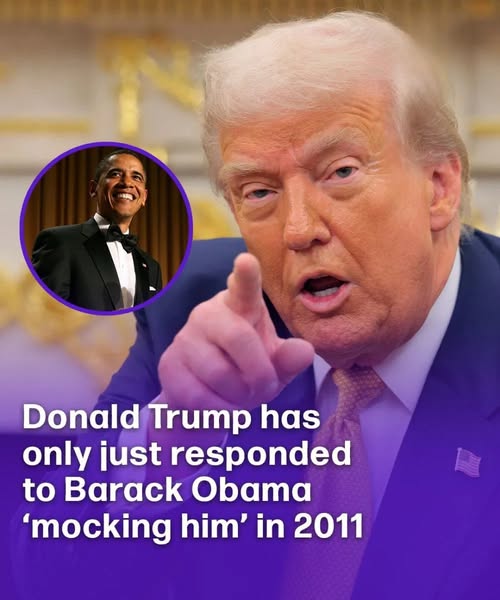Now, Trump is reframing it as the moment everything changed.
“It wasn’t the end,” Trump says in his new post. “It was the beginning.” He casts himself as the underestimated outsider, mocked on national television by the most powerful man in the world—and rising from that perceived slight to conquer the very system that laughed at him. The video aligns with his broader campaign message: I was never supposed to win—but I did.
The timing of this resurfacing is far from incidental. Trump’s renewed attention on the 2011 dinner coincides with escalating rhetoric toward Obama, whom he now accuses of orchestrating a “treasonous conspiracy” to block his 2016 victory. The claim was originally floated by his former Director of National Intelligence, Tulsi Gabbard, who recently alleged that Obama oversaw covert efforts to weaponize the intelligence community against Trump’s campaign.
These accusations, however, stand in stark contrast to the findings of multiple bipartisan and intelligence investigations. Reviews from the Senate Intelligence Committee and CIA assessments concluded that Russian operatives attempted to influence the 2016 election—primarily in Trump’s favor, not to the detriment of it. No credible evidence has emerged linking Obama to any illegal attempt to thwart Trump’s win.
Still, Trump’s narrative persists. It positions him as a wronged patriot, continually under siege by an entrenched political elite. In that light, the 2011 roast becomes more than a joke—it becomes, in Trump’s telling, a call to arms.
Critics view the resurfaced clip as a tactical distraction. With ongoing legal scrutiny over his handling of classified documents, renewed pressure to disclose Epstein-related materials, and questions surrounding his campaign finances, Trump’s team appears eager to shift focus. By redirecting public ire toward Obama—and invoking treason—he replays a familiar political strategy: galvanize the base by reviving the enemy.
And it works. The White House Correspondents’ Dinner, designed to showcase goodwill between politicians and the press, has always carried undertones of power and performance. But few moments from those dinners have resonated like Obama’s roast of Trump. In 2025, that laughter still echoes—but in Trump’s retelling, it doesn’t sting. It fuels.
As the country enters another polarizing election season, this moment from 2011 has been weaponized anew. Whether it will rally voters or backfire remains to be seen. But Trump’s message is crystal clear: They laughed then. They’re not laughing now.

